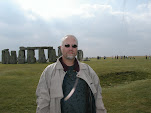Another Brilliant John Kass take on how Chicago really works.

John Kass
Quiet guy lifts the lid off hiring machine
Published May 26, 2006
Picture a red beet in a suit perched in the witness box in federal court, and you can see Jack Drumgould.
He's a quiet little guy who worked at City Hall for almost 30 years and who, on Thursday, explained how Chicago really works.
From the witness stand in the patronage corruption trial, with Mayor Richard Daley's underlings staring at him, Drumgould was established as an expert in the hiring business.
How do you become a hiring expert at City Hall so you can retire with a $6,000 monthly pension? You do what the mayor's office wants you to do when it comes to hiring some people and not hiring others.
You hire the guys they want you to hire and give them a good rating score. And you downgrade others after interviewing them because that's what the bosses want, even if those downgraded are more qualified.
Assistant U.S. Atty. Julie Ruder wanted to know about the hundreds of people he had interviewed for the jobs of truck driver and laborer. She asked: Didn't the interviews matter?
"No," he said. "Because the interviews are not going to decide who is going to receive the position."
In an earlier exchange, she asked why he bothered with the interviews.
"Because the union contracts required it," he said.
But what about the rating forms?
"The rating forms were irrelevant to who got the position," Drumgould said.
What was relevant?
"The list of names from IGA," he said.
IGA means the Mayor's Office of Intergovernmental Affairs. But it really means the mayor's office of patronage and machine politics, and Drumgould acknowledged as much.
He spoke in a little voice, but what he said was devastating to Daley underlings Robert Sorich, Patrick Slattery, Tim McCarthy and John Sullivan.
Every city worker understands. They're made scapegoats by those TV news exposes that shriek about three men on a shovel. Meanwhile, hundreds of millions of dollars in asphalt and trucking contracts go out the back door.
The aldermen ignore the big stuff because the aldermen are afraid. But they're brave when it comes to ginning up phony racial issues involving the naming of streets for dead Black Panthers, the better to boil the blood and get out the vote.
And they've stopped the selling of goose liver pate in gourmet restaurants. That's good government in Chicago: Defend the rights of geese while taxpayers get butchered.
Yet aldermen can always be counted on to cause a media distraction, as with their newly proposed $20,000 pay increase, to compete with bad news out of the federal building. They happily play the bobo.
In court Thursday, Drumgould sat there chatting, a political survivor who worked in Streets and Sanitation as a clerk of sorts, never sweating, wearing a tie. He testified that he retired to take a union job, then came back to City Hall on his own time to help phony up a few hundred more job applications.
He's out of the 19th Ward Democratic Organization. The boss of Streets and San for years was Eileen Carey, sister-in-law of one of Daley's political brains, 19th Ward boss Jeremiah Joyce, king of airport concessions, building supplies, lots of stuff.
Drumgould said he would get names from Sorich or others and make sure the employment forms were rigged. Those favored by the mayor's office always got the highest scores, he said.
It's the way it is here. There are always guys like Jack Drumgould who make sure the paperwork matches up for political hires. And other Drumgould types who made sure the paperwork matched for what I figure are untold tons of missing asphalt.
Under cross-examination, Cynthia Giacchetti, representing Sullivan, went after Drumgould, making him out to be a rat for testifying to save himself. She accused him of fudging his testimony, of not closely reading job applications. But he kept shooting back the theme of this trial so far: Politics trumps qualifications every time.
"I did not read the applications because I knew the applications had nothing to do with who would fill the position," he said, again and again.
The Daley underlings perked up during the cross-examination phase. Sorich sat straighter, as did the others. Their family members and friends sitting behind them seemed encouraged.
What do you tell them? Do they honestly believe that Rich Daley would fall on his sword for his underlings, as they're falling, now, for him?
During the lunch break, out on State Street, I ran into a man who knows the mayor extremely well and has made millions of dollars on political deals. I asked about the Daley underlings falling on their swords.
"They're fools," he said. "They're lackeys, taking orders and it's too bad."
I asked: Will Rich Daley help them?
He laughed, waved off the question and drove off. He knows the mayor is a one-way street.
----------
jskass@tribune.com
 Email this story
Email this story


